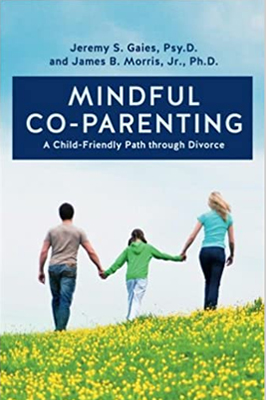Divorce or relationship breakups that involve children are so much more complicated and painful than those without. After all, you still must see and communicate with the person you are no longer with. No matter how painful the dissolution of your relationship was, how big the betrayal, you still must deal with this person when kids are involved. Co-parenting may present many challenges and frustrations.
Perhaps your relationship with your ex is amicable. If that is the case, co-parenting may seem easier.
Whatever your situation is, it is important to remember that your kids are what is most important now. And in most situations, it is best for them to have time with both parents and not be aware of any behind-the-scenes conflict or disagreement. That puts too much emotional burden on their shoulders.
With this in mind, here are tips that can help as you co-parent.
Remember that it’s About the Children Now
As mentioned, co-parenting means that your children’s needs are what is important. This can be helpful when you are tempted to make snide comments to them about your ex or are asked to be flexible with visits.
It is easy for lingering feelings of anger and hurt because of a relationship breakup to interfere with co-parenting. You may be so disgusted by your ex’s behaviour that you do not want to hide it. But bitterness only hurts you and your kids.
Instead, find trustworthy adults that you can vent to. Therapists are often very helpful during this process. Make yourself emotionally healthy and mature so that your kids have a good role model to follow.
Professional Communication
It is likely that you and your ex developed some unhealthy communication styles before and during your breakup. Unfortunately, if you are going to be effective co-parents, you can’t hold on to those communication patterns.
As you learn to set your anger toward your ex aside, you can implement better communication. Therapists often recommend that you treat co-parenting as a business relationship. As such, this means learning to remove emotion from the equation. Be polite and respectful. Instead of making demands or unilateral decisions about your kids, ask for your ex’s input and be willing to compromise. Be polite even when asking about small things.
There may be times when you strongly disagree with the decisions your ex makes. You may prefer healthy meals provided at regular intervals. Your ex may feed them fast food and let them stay up late. But it is important to know how to let some things slide. Save your energy and time for more involved conversations for bigger issues.
Consistency for the Kids
As much as you are able, try to establish some agreement with your ex about consistency for your children as they transition back and forth between your homes. It is very helpful for kids when their parents are on the same page about daily life.
If you have not already, talk with your ex about a co-parenting plan. This can lay out a shared vision for visitations, home life, education, health decisions, and more.
While no situation between shared homes will be identical, it is important for your kids that you and your ex can agree about discipline, rewards, expectations for behaviour and school, screen time, and more.
When kids know that you and your ex share the same attitude about how they are being raised, they will have more stability.
Life after a divorce or breakup is not easy for anyone, especially the kids. If you and your ex consistently have problems co-parenting effectively, consider reaching out to a therapist. Likewise, if your kids are suffering emotionally, be sure to address those needs.
We have experienced family therapists on our team, and they are here to help. Please call today to learn more.
A Book We Recommend
Being good parents is hard even when you’re happily married, but for separated or divorced couples, parenting can be particularly daunting. There is hope.
Mindful Co-Parenting provides divorced parents a practical way through the process that protects their children. Learn how to create a comprehensive parenting plan that can begin to establish a new norm for the benefit of your family’s new future.











